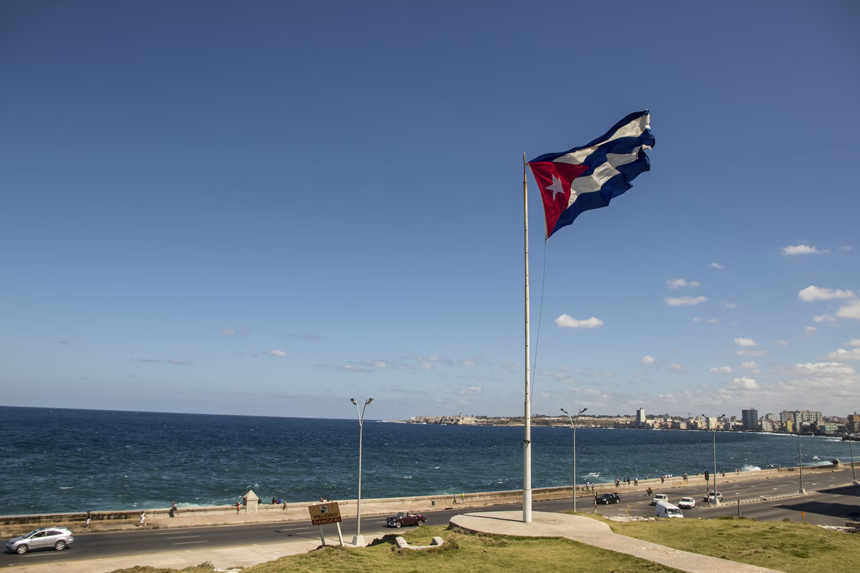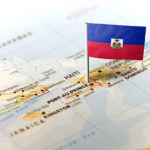Washington: January 2025 As part of a broader agreement that includes the release of hundreds of inmates, President Joe Biden declared on Tuesday that the United States will take Cuba off its list of state sponsors of terrorism. The U.S.-Cuba relationship, which has been tense for decades, especially under the Trump administration, has dramatically changed. It is believed that lifting Cuba’s terrorism designation marks a watershed and the beginning of better diplomatic and economic relations between the two countries.
- What Caused Trump to Reverse Cuba's Terrorism Designation and Why Did He Do It?
- How Did Cuba React When the Terrorism Designation Was Removed?
- How Did the Catholic Church Help to Make the Prisoner Release Possible?
- Are Normalized Relations Possible After Cuba Is Removed from the Terrorism List?
- What Plans Does Biden Have to Lift Cuba's Financial Restrictions?
- Once in office, will President-Elect Trump undo Biden's choice?
- What Does the Future Hold for U.S.-Cuba Relations?
Cuba said shortly after Biden’s announcement that it would free 553 inmates held for various offences. The Cuban government said it hoped some of those released would be people who took part in the massive anti-government demonstrations that took place there in 2021. The action is a part of larger negotiations that the Catholic Church has been mediating between the United States and Cuba.
What Caused Trump to Reverse Cuba's Terrorism Designation and Why Did He Do It?
Under President Donald Trump, the United States once again designated Cuba as a state sponsor of terrorism in 2021. Significant repercussions resulted from this decision, which was announced in the latter days of his presidency and included a prohibition on U.S. economic assistance and weaponry sales to Cuba. The Trump administration added Cuba back to the list, which already includes countries like North Korea, Syria, and Iran, mostly because it backed Venezuelan President Nicolás Maduro’s government.
But now, Biden’s government has decided to go back. “An assessment of the situation has presented no information that supports the designation,” a Biden administration official clarified. According to the official’s statement, the United States no longer thinks Cuba’s activities justify the country’s designation as a sponsor of terrorism.
How Did Cuba React When the Terrorism Designation Was Removed?
The Cuban leadership hailed Biden’s decision as “a step in the right direction.” “This decision puts an end to specific coercive measures that, along with many others, cause serious damage to the Cuban economy, with a severe effect on the population,” said a statement from Cuba’s Ministry of Foreign Affairs, which acknowledged the move’s limited reach. The Cuban government has long viewed the U.S. embargo and sanctions as unfair and detrimental to its citizens.
There may be opportunities for further communication between the two nations if Cuba’s categorization as a terrorist organization is lifted. It might also help Cuba’s faltering economy, which a confluence of domestic problems and U.S. sanctions has hampered. The designation’s removal would make it easier for big banks and international investors to do business in Cuba, as some have been reluctant to do so because of regulatory restrictions.
How Did the Catholic Church Help to Make the Prisoner Release Possible?
The news of the release of 553 inmates is regarded as a significant gesture in addition to the change in Cuba’s categorization. The Cuban government said the inmates would be released “gradually” after the Catholic Church mediated negotiations. Although it is unclear exactly which inmates will be released, there is a general expectation that some will participate in the anti-government demonstrations in 2021.
Numerous participants in the rallies, which broke out in reaction to the nation’s economic problems, had previously been imprisoned by the Cuban government. Better living circumstances and an end to the financial woes that many Cubans face were demanded during the rallies, among the biggest in recent memory.
Are Normalized Relations Possible After Cuba Is Removed from the Terrorism List?
There is more to the removal of Cuba from the terrorist list than meets the eye. It might mark a sea change in the normalization of U.S.-Cuban ties, which had been improving under President Obama. Although many applauded Obama’s 2015 decision to remove Cuba from the list, President Trump undid it while he was in office.
Further talks on other divisive topics between the two countries, such as economic cooperation, human rights, and the future of U.S. sanctions, may be made possible by Biden’s actions. Potential first steps in a larger effort to re-engage with Cuba include the release of prisoners and the U.S. decision to lift some financial restrictions imposed during the Trump administration.
What Plans Does Biden Have to Lift Cuba's Financial Restrictions?
Biden intends to inform Congress of additional steps to loosen financial sanctions on Cuba and to remove the island nation from the list of state sponsors of terrorism. According to a White House statement, Biden would lift some financial restrictions during the Trump administration that limited transactions for specific Cubans. This includes making financial services more easily accessible and permitting certain people to transmit money to relatives in Cuba.
In another move that would help reduce tensions between the two countries, Biden is also anticipated to halt the right of citizens to file property claims that have been seized in Cuba. These actions are seen as a component of a larger plan to stabilize Cuba’s economy, which has declined for several years.
Once in office, will President-Elect Trump undo Biden's choice?
Although Biden’s proposal has been made public, it is still unknown if Donald Trump, the president-elect, will undo these rulings when he takes office on January 20. Many of the limitations that Biden is now lifting were reinstated by Trump, a lifelong opponent of Cuba’s communist regime. Marco Rubio, his choice for U.S. Secretary of State, has likewise been an outspoken supporter of keeping Cuba under sanctions.
Being of Cuban heritage, Rubio has continuously advocated for measures that he thinks will pressure the Cuban government to implement political change. Rubio has previously stated that “now is not the time to ease sanctions on the Cuban regime.” His stance on Cuba and its government’s treatment of its citizens has made him a strong proponent of a tough U.S. policy toward the island.
The future of U.S.-Cuba relations will depend in part on the approach taken by the incoming administration. Still, Biden’s decision to remove the terrorism designation marks an important step in the process of potentially normalizing relations and addressing Cuba’s economic challenges.
What Does the Future Hold for U.S.-Cuba Relations?
Removing Cuba from the U.S. State Sponsors of Terrorism list is a historic decision that could mark the beginning of a new chapter in U.S.-Cuba relations. While challenges remain, the prisoner release deal and Biden’s willingness to reverse Trump-era sanctions offer a glimmer of hope for improved diplomatic and economic ties. The actions taken by both countries suggest that the possibility for reconciliation and cooperation may be on the horizon, though the road ahead remains uncertain.
This decision to remove Cuba’s terrorism designation is being closely watched and could lead to more comprehensive reforms in U.S.-Cuba relations in the coming years.








